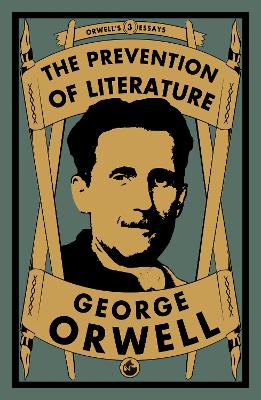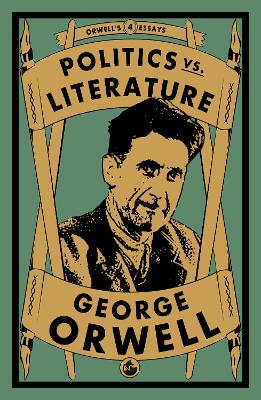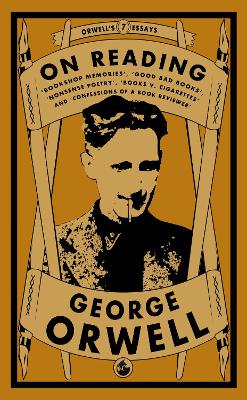Orwell's Essays
3 primary works
Book 3
George Orwell set out ‘to make political writing into an art’, and to a wide extent this aim shaped the future of English literature – his descriptions of authoritarian regimes helped to form a new vocabulary that is fundamental to understanding totalitarianism. While 1984 and Animal Farm are amongst the most popular classic novels in the English language, this new series of Orwell’s essays seeks to bring a wider selection of his writing on politics and literature to a new readership. In The Prevention of Literature, the third in the Orwell’s Essays series, Orwell considers the freedom of thought and expression. He discusses the effect of the ownership of the press on the accuracy of reports of events, and takes aim at political language, which ‘consists almost entirely of prefabricated phrases bolted together.’ The Prevention of Literature is a stirring cry for freedom from censorship, which Orwell says must start with the writer themselves: ‘To write in plain vigorous language one has to think fearlessly.’
Book 4
George Orwell set out 'to make political writing into an art', and to a wide extent this aim shaped the future of English literature - his descriptions of authoritarian regimes helped to form a new vocabulary that is fundamental to understanding totalitarianism. While 1984 and Animal Farm are amongst the most popular classic novels in the English language, this new series of Orwell's essays seeks to bring a wider selection of his writing on politics and literature to a new readership. Politics vs. Literature, the fourth in the Orwell's Essays series, is, at heart, a review of Jonathan Swift's Gulliver's Travels. Having been given a copy of the book on his eighth birthday, Orwell knows it inside out, and thinks highly of it; it is 'pessimistic', though, he says - 'it descends into political partisanship of a narrow kind,' designed to 'humiliate man by reminding him that he is weak and ridiculous.' Using the book as an example of enjoying a book whose author one cannot stand, Orwell goes on to say that he considers Gulliver's Travels a work of art, leaving the reader to reconsider the books on their own shelves.
Book 7
George Orwell set out ‘to make political writing into an art’, and to a wide extent this aim shaped the future of English literature – his descriptions of authoritarian regimes helped to form a new vocabulary that is fundamental to understanding totalitarianism. While 1984 and Animal Farm are amongst the most popular classic novels in the English language, this new series of Orwell’s essays seeks to bring a wider selection of his writing on politics and literature to a new readership.
On Reading, the seventh in the Orwell’s Essays series, collects together Orwell’s short essays on books – ‘Bookshop Memories’, ‘Good Bad Books’, ‘Nonsense Poetry’, ‘Books vs. Cigarettes’ and ‘Confessions of a Book Reviewer’ – giving a rounded view of the great writer’s opinions on the literature of his day, and the vessels in which it was sold.
On Reading, the seventh in the Orwell’s Essays series, collects together Orwell’s short essays on books – ‘Bookshop Memories’, ‘Good Bad Books’, ‘Nonsense Poetry’, ‘Books vs. Cigarettes’ and ‘Confessions of a Book Reviewer’ – giving a rounded view of the great writer’s opinions on the literature of his day, and the vessels in which it was sold.


